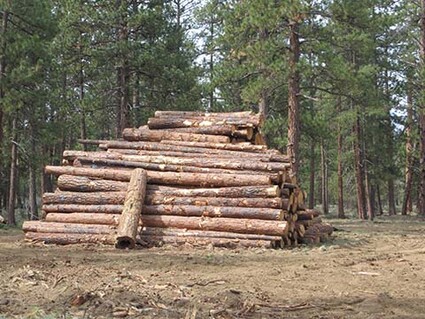Use of tree-killing herbicide restricted
Last updated 5/15/2019 at Noon
The Oregon Department of Agriculture (ODA) has put strict restrictions on the use of an herbicide held responsible for killing 2,100 trees along Highway 20 west of Sisters.
ODA reports reviewing more than 5,000 written public comments and testimony at public hearings before adopting a permanent rule signed to prevent future widespread tree deaths statewide. ODA investigators concluded that applications of aminocyclopyrachlor (ACP) from 2013 to 2015 in Central Oregon left more than 2,000 ponderosa and lodgepole pines dead and dying. There are currently four known locations near Sisters exhibiting herbicide damage attributed to the use of ACP.
A logging project is currently underway to remove the dead and dying trees along Highway 20. According to Sisters District Ranger Ian Reid, that project is moving on or ahead of schedule and he expects that crews will hit the completion target date of May 22.
ODA’s permanent rule prohibits byproducts of ACP-affected trees from being used in compost, mulch or animal bedding that will be used in compost or mulch. The permanent rule was filed with the Oregon Secretary of State on May 9, 2019 and is effective immediately.
Nothing in the permanent rule prohibits the sale of the logged trees as saw timber, Reid confirmed. A buyer would, however, be restricted from using any chips or sawdust for mulch.
“We would put that in our prospectus when that goes out to bid,” Reid said.
Reid said that the Forest Service is working diligently on crafting a timber sale, which could go out to bid soon.
“Hopefully early this summer,” Reid said. “And we would get it sold fairly quickly. This summer; this fall at the latest.”
Reid noted that the stumps left in the wake of the project will be visible for a while before crews come back in to grind them. He said that scientists are interested in inspecting the stumps to gauge the herbicide effects and possibly to study fire scars. The timeline for grinding the stumps has not yet been determined.
The ACP rule:
•?Prohibits ACP use on rights of way, natural areas, restoration areas, marshes, swamps, bogs, wetlands and sage-grouse areas unless: applications are noncontiguous and, in the aggregate, do not exceed more than five percent of an acre; use is limited to one application per 365 days; and use is to control state- or county-listed noxious
weeds.
•?Prohibits ACP use on inner and outer banks of ditches and canals.
•?Prohibits ACP use where roots of non-target trees or shrubs may extend.
•?Prohibits all aerial applications of ACP.
•?Prohibits plant materials that have been treated with or exposed to ACP from being used in compost, mulch or animal bedding that is used in compost or mulch.
•?Defines rights of way specific to ACP use.
•?Failure to comply may result in revocation, suspension or refusal to issue or renew a certification or license and/or imposition of a civil penalty.
ODA first adopted a temporary rule limiting the use of ACP in September 2018. ODA proposed a permanent rule in January 2019, which was scheduled to be adopted in March 2019. On March 20, ODA received a request from Bayer Crop Science LP, Environmental Science Division, the registrant for ACP products in Oregon, to postpone adoption of the permanent rule. As required by law, ODA postponed the date of its intended action. ODA also reopened public comment. During this time, ODA received an additional 118 comments, which it considered when drafting the permanent rule.
For more information about the ACP rule, visit https://oda.direct/Rulemaking.

















Reader Comments(0)